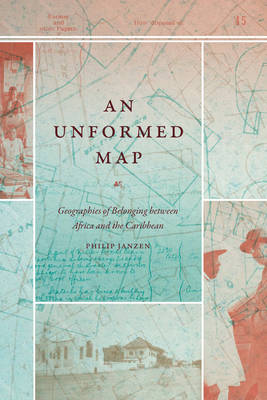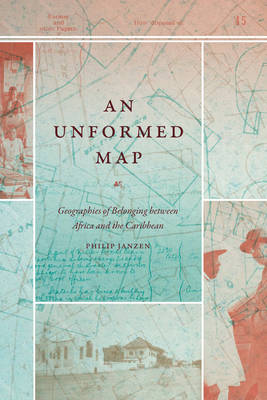
Bedankt voor het vertrouwen het afgelopen jaar! Om jou te bedanken bieden we GRATIS verzending (in België) aan op alles gedurende de hele maand januari.
- Afhalen na 1 uur in een winkel met voorraad
- In januari gratis thuislevering in België
- Ruim aanbod met 7 miljoen producten
Bedankt voor het vertrouwen het afgelopen jaar! Om jou te bedanken bieden we GRATIS verzending (in België) aan op alles gedurende de hele maand januari.
- Afhalen na 1 uur in een winkel met voorraad
- In januari gratis thuislevering in België
- Ruim aanbod met 7 miljoen producten
Zoeken
€ 42,95
+ 85 punten
Uitvoering
Omschrijving
In An Unformed Map, Philip Janzen traces the intellectual trajectories of Caribbean people who joined the British and French colonial administrations in Africa between 1890 and 1930. Caribbean administrators grew up in colonial societies, saw themselves as British and French, and tended to look down on Africans. Once in Africa, however, they were doubly marginalized--excluded by Europeans and unwelcome among Africans. This marginalization was then reproduced in colonial archives, where their lives appear only in fragments. Drawing on sources beyond the archives of empire, from dictionaries and language exams to a suitcase full of poems, Janzen considers how Caribbean administrators reckoned with the profound effects of assimilation, racism, and dislocation. As they learned African languages, formed relationships with African intellectuals, and engaged with African cultures and histories, they began to rethink their positions in the British and French empires. They also created new geographies of belonging across the Atlantic, foundations from which others imagined new political horizons. Ultimately, Janzen offers a model for reading across sources and writing history in the face of archival fragmentation.
Specificaties
Betrokkenen
- Auteur(s):
- Uitgeverij:
Inhoud
- Aantal bladzijden:
- 272
- Taal:
- Engels
- Reeks:
Eigenschappen
- Productcode (EAN):
- 9781478031925
- Verschijningsdatum:
- 6/06/2025
- Uitvoering:
- Paperback
- Formaat:
- Trade paperback (VS)
- Afmetingen:
- 152 mm x 229 mm
- Gewicht:
- 371 g

Alleen bij Standaard Boekhandel
+ 85 punten op je klantenkaart van Standaard Boekhandel
Beoordelingen
We publiceren alleen reviews die voldoen aan de voorwaarden voor reviews. Bekijk onze voorwaarden voor reviews.









